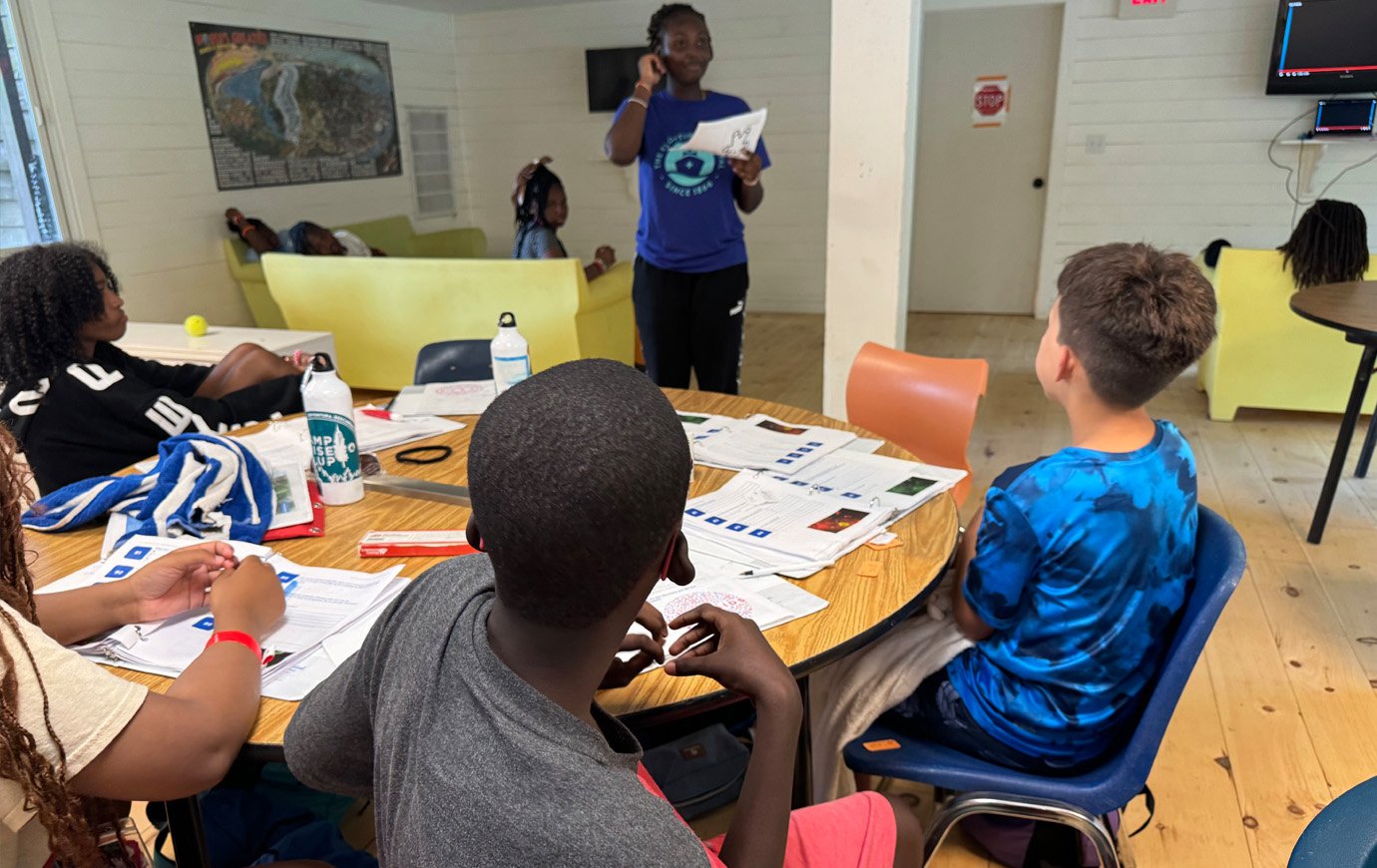Putting the health in health education
“Ever since the Covid pandemic, youth have reported higher rates of depression, anxiety and loneliness,” according to Dr. Meghan Miller, director of health education at The Floating Hospital. “Our work as health educators can help to bring youth back into healthier bodies and minds through health interventions and youth-centered programming to build resilience and foster social-emotional skills for future success.”
In addition to honors from the Bank of America and Schneps Media this year (see related article in News & Events), Miller was a keynote speaker and session leader at the Adolescent Health Symposium at the University of Wisconsin, La Crosse in February. The theme was “Navigating from Loneliness to Thriving.” She discussed TFH’s Camp Rise Up program and how it promotes social-emotional learning in teens living in temporary housing to help them develop resilience, self-control, and social and leadership skills, as well as self-esteem and healthy responses to peer pressure.
With a master’s degree in public health from Emory University and a doctorate in education from Teachers College, Columbia University, Miller created youth-development camps for the Peace Corps in Uganda, which were the inspiration for Camp Rise Up, our weeklong overnight camp in the foothills of the Catskills.
“Creating open and safe spaces where young people can discuss their feelings and experiences without stigma fosters a culture of understanding and support.”
“Health educators have a critical role in fostering resilience, building social connection and amplifying life skills in youth,” she said. “Developing skills such as empathy, emotional regulation and effective communication can play a crucial role in mitigating loneliness and improving overall health. Creating open and safe spaces where young people can discuss their feelings and experiences without stigma fosters a culture of understanding and support.”
Miller is also thinking about the national loneliness epidemic and how it affects teens at a time when they are experiencing physical, intellectual and emotional upheaval. Loneliness, which peaks in adolescence and then in old age, can have detrimental health effects similar to smoking up to 15 cigarettes a day, according to a 2023 U.S. Surgeon General Advisory.
At the root of it all is giving teens tools critical to navigating their world and all the challenges that may arise: the social-emotional skills that need to be learned and practiced to lead a successful life. This is the crux of Camp Rise Up and what we aim to do every summer there, as well as in our Health Education department every day.


